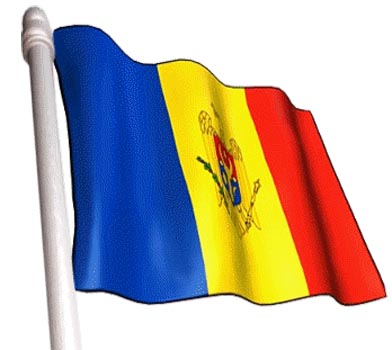Kremlin is loosing its grip on renegade Moldovan province
 Moscow - Two weeks ahead of critical polls in Moldova, Moscow invited the country's outgoing president and his separatist rival for what seemed less a chat in the principle's office than a candy-for-promises routine.
Moscow - Two weeks ahead of critical polls in Moldova, Moscow invited the country's outgoing president and his separatist rival for what seemed less a chat in the principle's office than a candy-for-promises routine.
It was no mean feat uniting the two, who have met just once in almost eight years, to discuss their decades-long dispute.
Russia pulled all its weight to orchestrate the meeting intent on restore its image abroad as an honest broker in the post-Soviet space after its military push into Georgia in August, analysts said.
The meeting, observers said, was also Moscow's attempt to reward Moldovan President Vladimir Voronin for not tearing his shirt and running into Europe's arms after Russia recognized as independent Georgia's two breakaway regions in August.
But Russia's exercise in demonstrating its continuing influence in Moldova and its separatist enclave did not seem to have deep roots.
Rhetoric from Moscow has long linked Georgia's "frozen conflicts" and Moldova's breakaway region of Transdniestr, causing sticky ground for Moscow with the events of this August.
Russia cast all three regions as deserving of more autonomy since wars of secession in the early 1990s but without going so far as to recognize any as independent until after its war with Georgia changed policy.
Transdniestr, a slim stretch of land along Moldova's border with Ukraine, gained de-facto autonomy in 1992 when Russian-speaking hardliners fought a brief but bloody war with Molodva. Subsequent referendums in the region of 550,000 have shown a mojority in favor of independence and absorption into Russia.
The unresolved conflict remains a source of instability on the European Union's border.
Russian President Dmitry Medvedev scored what looked like a foreign policy success at the Moscow meeting on March 18 by extracting pledges from the two adversaries to restart peace talks through a series of internationally mediated bilateral meetings.
Moscow also softened its position agreeing to eventually hand-over command of peacekeeping force in Transdniestr to the Organization for Security and Cooperation in Europe (OSCE).
But the first scheduled talks just on week later were a wash, with Voronin cancelling after Transdniestr leader Igor Smirnov imposed a travel ban on US and EU negotiators.
Smirnov's pronouncement just after talks in Moscow that Transdniestr and Moldova had "moved no closer in our positions," had already cast a pall on the event.
Ahead of three-party meeting Russian daily Kommersant reported that Moscow was fed up with their apparent ally Smirnov's intransigence.
The paper cited an unidentified senior presidential aide as saying, the Kremlin had "low expectations" for the talks and instead aimed "to give Smirnov to understand that in Moscow nobody supports what he is doing."
Moscow-based independent military analyst Pavel Felgenhauer called the Moscow-brokered peace talks an "embarrassment" for the Kremlin.
"Moldova, Transdniestr are seemingly in our sphere of influence and Russian client states, but even there we can't seem to exercise control," he told the German Press Agency dpa.
"This just proves we no longer have the Soviet-era capability to support a Brezhnev doctrine ... these states are looking the other way because Moscow is no longer the center of gravity," he said.
But Voronin was not sent home to Europe's poorest country empty-handed. Kremlin aide Sergei Prikhodko was quoted by the paper as saying Moscow paid back Voronin's trip and some with a promise of 50,000 tons of Russian fuel oil as aid to farmers.
The promised Russian aid should help give a boost to Voronin's Communist Party, traditionally friendly toward Moscow, in the upcoming polls to push ahead of Moldova's pro-European opposition. (dpa)